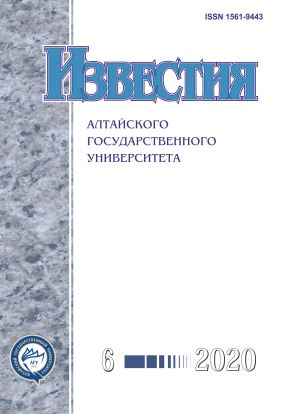EU Memory Politics in the Context of Understanding Decolonization and a Common European Identity
УДК 323.2 ББК 66.3(0)
Abstract
The purpose of the article is to determine the relationship between the processes of Decolonization, the search for strengthening European identity and building a memory policy on the example of the European Union with the aim of identifying problematic and promising points at the current stage of development of the association. The terminological difficulties of using such categories as “memory policy”, “decolonization” and “European identity” and the process of their constant filling with new meanings are shown. Particular attention is paid to the moral aspect of decolonization and the problems of responsibility of the former European metropolises to developing countries, which for a long time were part of their formal and informal empires. It was revealed that the migration crisis of 2014-2016. It became a kind of “break point” in relation to migrants in general and refugees in particular, casting doubt on traditional European values and the willingness of EU countries to resolve the crisis in the spirit of humanitarian assistance and a development philosophy. The interpretation of Decolonization in a number of European countries not only did not end, but also did not begin at the ideological, political and institutional level. Such a situation is determined by the relevance of the considered subjects and their scientific, practical and political significance.
Downloads
Metrics
References
Нора П. Всемирное торжество памяти // Неприкосновенный запас. 2005. № 2-3.
Leggewie C. Seven Circles of European Memory. URL: https://www.eurozine.com/seven-circles-of-european-memory/.
Fuchs E., Otto M. Educational Media, Textbooks, and Postcolonial Relocations of Memory Politics in Europe // Journal of Educational Media, Memory & Society. 2013. Vol. 5. No. 1. Special Issue: Postcolonial Memory Politics in Educational Media.
Якубин А.Л. Политики памяти в объединенной Европе: общность, партикулярность, ассамбляж // Политическая наука. 2014. №2.
Сыров В.Н., Головашина О.В., Линченко А.А. Политика памяти в свете теоретико-методологической рефлексии: опыт зарубежных исследований // Вестник Томского гос. ун-та. 2016. № 407.
Collins M. Nation, State and Agency: Evolving Historiographies of African Decolonization. // Britain, France and the Decolonization of Africa. Ed. by Andrew W.M. Smith, Chris Jeppesen. Berkeley, 2017.
Bogaerts E., Raben R. Prologue // Beyond Empire and Nation. The Decolonization of African and Asian societies, 1930s-1970s. Leiden ; Boston, 2012.
Фурсов К.А. Деколонизация афро-азиатского мира: предпосылки, этапы, модели // Восток. Афро-азиатские общества. История и современность. 2015. №2.
Энтин М.Л., Энтина Е.Г., Торкунова Е.А. Новый этап деколонизации: от формальной суверенности к реальной // Полис. Политические исследования. 2019. №1.
Bosma U. Post-colonial Immigrants and Identity Formations in the Netherlands. Amsterdam, 2012.
Ndlovu-Gatsheni S.J. Fiftieth Anniversary of Decolonisation in Africa: a Moment of Celebration or Critical Reflection? // Third World Quarterly. Vol. 33. No. 1. 2012.
Bhambra G.K. The Refugee Crisis and Our Connected Histories of Colonialism and Empire. URL: https://www.sicherheitspolitik-blog.de/2015/10/01/the-refugee-crisis-and-our-connected-histories-of-colonialism-and-empire/.
World Conference against Racism, Racial Discrimination, Xenophobia and Related Intolerance. Acknowledgement of Past, Compensation Urged by Many Leaders in Continuing Debate at Racism Conference. URL: https://www.un.org/WCAR/pressreleases/rd-d24.html.
Nora P. Reasons for the Current Upsurge in Memory. URL: https://www.eurozine.com/reasons-for-the-current-upsurge-in-memory/.
European Commission. 40 years. Eurobarometer. EU citizenship. URL: http://ec.europa.eu/commfrontoffice/publicopinion/topics/fs5_citizen_40_en.pdf.
Izvestiya of Altai State University is a golden publisher, as we allow self-archiving, but most importantly we are fully transparent about your rights.
Authors may present and discuss their findings ahead of publication: at biological or scientific conferences, on preprint servers, in public databases, and in blogs, wikis, tweets, and other informal communication channels.
Izvestiya of Altai State University allows authors to deposit manuscripts (currently under review or those for intended submission to Izvestiya of Altai State University) in non-commercial, pre-print servers such as ArXiv.
Authors who publish with this journal agree to the following terms:
- Authors retain copyright and grant the journal right of first publication with the work simultaneously licensed under a Creative Commons Attribution License (CC BY 4.0) that allows others to share the work with an acknowledgement of the work's authorship and initial publication in this journal.
- Authors are able to enter into separate, additional contractual arrangements for the non-exclusive distribution of the journal's published version of the work (e.g., post it to an institutional repository or publish it in a book), with an acknowledgement of its initial publication in this journal.
- Authors are permitted and encouraged to post their work online (e.g., in institutional repositories or on their website) prior to and during the submission process, as it can lead to productive exchanges, as well as earlier and greater citation of published work (See The Effect of Open Access).








